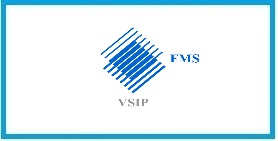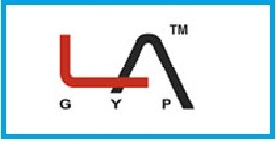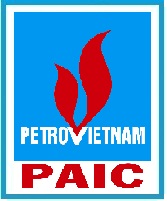 0936 1111 82
0936 1111 82Labor Code of Vietnam 2012 - Chapter VI SALARY
Chapter VI SALARY
|
|
VIET NAM LABOR CODE 2012(THE LABOR CODE OF VIETNAM)The Labor Code specifies the labor standards; the rights, obligations and responsibilities of the employees, the employers, the labor representative organizations, the employer representative organizations in the labor relation and other relations directly related to the labor relation, the State management of labor |
Chapter VI
SALARY
Article 90. Salary
1. Salary is an amount that the employer pays to the employee for the performance of work as agreed.
The salary includes the salary rate based on the work or the title, salary allowance and other additions
The salary rate of the employee must not be lower than the minimal salary rate as prescribed by the Government.
2. The salary paid to the employee is based on the labor productivity and work quality.
3. The employer must guarantee to pay equally without the gender discrimination for the employee performing work with the same value.
Article 91. Minimal salary rate
1. The minimal salary rate is the lowest rate that is paid to the emmployee who performs the simplest work in the normal working conditions and that must ensure the minimal living needs of the employees and their families.
The minimal salary rate is determined by month, day, hour and shall be established by region and sector.
2. Based on the minimal living needs of the employees and their families, the social and economic conditions and the salary wage on the labor market, the Government shall announce the regional minimal wage on the basis of the recommendations of the National Wages Council.
3. The minimal salary rate is determined through the sector collective negotiation and specified in the sector collective labor agreement but is not lower than the minimal salary rate announced by the Government.
Article 92. National Wages Council.
1. The National Wages Council is an advisory agency to the Government, including the members who are representatives of the Ministry of Labour – Invalids and Social Affairs, Vietnam General Confederation of Labour and the representative organization of the employer in the central.
2. The Government specifically regulates the functions, duties and organizational structure of the National Wages Council.
Article 93. Formulation of salary scale and payroll and labor norm
1. On the basis of the principles of formulating the salary scale, payroll and labor norms prescribed by the Government, the employer is responsible for formulating the salary scale, payroll and labor norm as a basis for labor recruitment and employment, salary agreement in the labor contract and salary payment to the employee
2. Upon formulating the salary scale, payroll and labor norms, the employer must consult with the representative organization of the labor collective at the grassroots level and publicize at the workplace of the employee before the formulation and simultaneously send them to the state management agency on labor at district level where the facility of production and business of the employer located.
Article 94. Form of salary payment
1. The employer has the right to make the salary payment by time, products or piecework. The chosen form of payment must be maintained for a certain period; in case of change of the payment form, the employer must notify the employee at least 10 days in advance.
2. Salary is paid in cash or paid throughthe employee’s individual account opened at the bank. Where the payment made through bank account, the employer must agree with the employee on the various fees related to opening and maintaining the account.
Article 95. Payment term
1. The employee whose salary based on hour, day and week shall be paid by hour, day and week or a lump sum agreed upon by both parties, but a lump sum must be paid once at least 15 days
2. The employee whose salary based on month shall be paid once a month or once a fortnight.
3. The employee whose salary based on the product and piecework shall be paid as agreed upon by both parties; if the work has to be done in many months, the monthly salary shall be advanced by the volume of work done during the month.
Article 96. Principle of salary payment
The employee is paid directly, fully and in a timely manner.
In special case the salary may not be paid in a timely manner, it must not be later than 01 month and the employer must pay the employee an additonal amount at least equal to the deposit interest rates by the State Bank of Vietnam announced at the time of payment.
Article 97. Overtime and working at night salary
1. The employee who works overtime is paid according to salary unit price or the salary by the job duties as follows:
a) On weekdays,at least150%;
b) On weekly days-off, at least200%;
c) On holidays and days-off with pay, at least 300% not including the salary of holiday and days-off for employee enjoying daily salary.
2. Employee working at night shall be additionally paid at least 30% of the salary calculated by the salary unit price or the work salary under a normal working day
3. The employee working overtime at night, in addition to the salary as prescribed in Clause 1 and Clause 2 of this Article, the employee shall also be paid an additional 20% of salary calculated by the salary unit price or the salary of work done in the day time
Article 98. Stop of working salary
In cases where the employee has to cease working, he shall be paid as follows:
1. If due to the fault of the employer, the employee shall be entitled to payment of the full salary;
2. If due to the fault of the employee, that employee shall not be entitled to salary payment; other employees in the same unit who have to cease work shall be paid the salary at the rate agreed on by the two parties provided that this salary rate is not less than the regional minimal salary rate as prescribed by the Government;
3. If there is a breakdown in electricity or water not due to the fault of the employer, or the employee or due to reasons of force majeure such as natural disasters, fire, dangerous epidemics, enemy-inflictes destruction, relocation of work place as required by the competent state agency or economic reasons, the salary for the working cease shall be agreed on by the two parties but shall not be less than the regional minimum wage as prescribed by the Government.
Article 99. Making salary payment through the contractor’s foreman
1. Where a contractor's foreman or equivalent intermediary is employed, the employer who is the principal owner must have a list of the names and addresses of such persons accompanied by a list of their employees, and must ensure that their activities comply with the provisions of the law on salary payment, labour safety and labor sanitation.
2. In case the contractor's foreman or the equivalent intermediary fails to pay, or pay in full or to ensure other interests of employees, the employer who is the principal owner must be responsible for the full salary payment and for ensuring such interests for the employees. In this case, the employer who is the principal owner shall have the right to request the compensation from the contractor's foreman or equivalent intermediary, or request a competent State agency to resolve the dispute in accordance with the provisions of the law.
Article 100. Advance of salary payment
1. The employee shall be entitled to an advance of salary payment in accordance with the conditions agreed by both parties.
2. The employer shall advance the salary payment corresponding to the number of days the employee temporarily leaves his work to perform duties of citizen from 01 week or more but not exceeding 01 month salary maximally and the employee shall refund the advanced amount except for execution of military service.
Article 101. Deduction of salary
1. The employer is only entitled to deduct the salary of employee for the compensation of damages of tools and equipment of the employer as prescribed in Article 130 of this Code.
2. The employee shall have the right to be aware of the reasons for the deduction of his salary
3. The rate of monthly salary deduction may not exceed 30% of the employee’s monthly salary after the payment of compulsory social insurance, health insurance, unemployment insurance and income tax.
Article 102. Regulation on allowance, subsidy, scale and salary increase.
The regulation on allowance, subsidy, scale and salary increase and incentives for the employee shall be agreed upon in the labor contract, collective labor agreement or the provisions specified by the employer
Article 103. Bonus
1. Bonus is the amount that employer rewards the employee based on the annual business and production results and the level of work completion of the employee.
2. The regulation on bonus shall be decided by the employer and publicly announced at the workplace after consulting the representative organization of the labor collective at the grassroots level.
Related News
- Labor Code of Vietnam 2012 - Chapter I GENERAL PROVISIONS
- Labor Code of Vietnam 2012 - Chapter II EMPLOYMENTS
- Labor Code of Vietnam 2012 - Chapter III LABOR CONTRACT
- Labor Code of Vietnam 2012 - Chapter IV VOCATIONAL LEARNING AND TRAINING, VOCATIONAL SKILL AND GRADE IMPROVEMENT
- Labor Code of Vietnam 2012 - Chapter V DIALOGUE AT THE WORKPLACE, COLLECTIVE NEGOTIATION, COLLECTIVE LABOUR AGREEMENT
- Labor Code of Vietnam 2012 - Chapter VII WORKING HOURS AND BREAK HOURS
- Labor Code of Vietnam 2012 - Chapter VIII LABOR DISCIPLINE AND MATERIAL RESPONSIBLITY
- Labor Code Vietnam 2012 - Chapter IX LABOR SAFETY AND HYGIENE
- Labor code Vietnam 2012 - Chapter X PRIVATE REGULATIONS FOR FEMALE EMPLOYEE
- Labor code Vietnam 2012 - Chapter XI EXCLUSIVE PROVISIONS FOR UNDER AGE EMPLOYEE AND A NUMBER OF TYPES OF EMPLOYEE





















